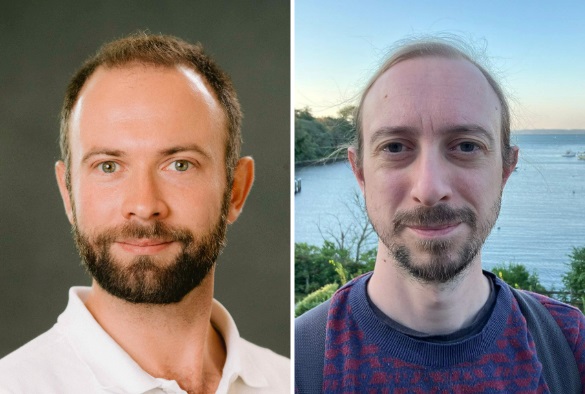University of Liverpool Welcomes New Recipients of UKRI Future Leaders Fellowships
Two University of Liverpool researchers have been awarded coveted Future Leaders Fellowships to support their research.
A highly competitive scheme, the UKRI Future Leadership Fellowship (FLF) programme allows early career researchers to develop and tackle ambitious, challenging and important research questions.
PREdicting biological Carbon in the Ocean Globally
Under his Future Leaders Fellowship, Dr Jamie Wilson, an ocean scientist with the University’s School of Environmental Sciences, aims to predict how a natural reservoir of carbon stored in the ocean will respond to climate change.
Little is known about how environmental change will affect the Biological Carbon Pump, an important process where plankton remove carbon dioxide from the atmosphere and store it for hundreds of years deep in the ocean. This uncertainty is part of the challenge to successfully stabilise our future climate.
Working with international researchers and industry partners, Dr Wilson’s project entitled `PREdicting biological Carbon in the Ocean Globally’ (PRECOG), will build a new knowledge framework, bringing together climate models and observations, to determine the long-term impact of the Biological Carbon Pump beyond 2100 to inform future IPCC reports and mitigation strategies.
Closing in on Dark Matter with Superfluids and Quantum Technology
Dark Matter is the best evidence for the existence of particles beyond the standard model of physics and the eventual discovery of their nature will transform our understanding of the universe.
Dr Juri Smirnov, from the University’s Department of Mathematical Sciences, has been awarded a Future Leaders Fellowship to develop more precise tests to search for the existence of Dark Matter.
The aim of his project is to use superfluids and quantum technology to dramatically improve the sensitivity of searches for Dark Matter candidates.
An ambitious and interdisciplinary project, the `Closing in on Dark Matter with Superfluids and Quantum Technology’ project is designed to attack specific blind spots that exist in the current search process.
Drawing on Dr Smirnov’s strong network of international collaborators, the project will use wide-ranging theoretical efforts, for example generative AI, to help develop new experimental strategies based on emerging technologies to realise this vision.
Announced today (18 July 2024), Dr Wilson and Dr Smirnov are amongst sixty-eight of the most promising research leaders supported in the eighth round of the UKRI’s Future Leaders Fellowships programme.
UKRI Chief Executive, Professor Dame Ottoline Leyser, said: “UKRI’s Future Leaders Fellowships provide researchers and innovators with long-term support and training to develop ambitious, transformative ideas.
“The programme supports the research and innovation leaders of the future to transcend disciplinary and sector boundaries, bridging the gap between academia and business.
“The fellows announced today demonstrate how these awards continue to drive excellence, and to shorten the distance from discovery to prosperity and public good.”

